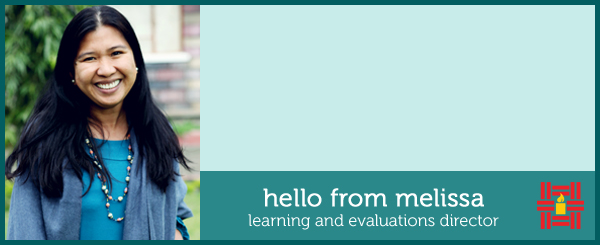I was, and still am, proud to have come from a town—tiny it may be—in rural Philippines with a public library. Looking back, I would say that being introduced to it at third grade by the daughter of my kindergarten teacher was the greatest blessing of my childhood life. I always wonder: Had I not discovered the joys of reading at an early age, would I have ended in the here and now doing what I am doing? I have always believed that reading saved my life because no matter how hard life was growing up, I always had books to take me away from my realities to live another’s.
But aside from having a library to borrow books from, I was also lucky to have adults around me who encouraged my budding interest on reading. My parents, although not big on reading themselves, exempted me from most household chores because of it (much to the annoyance of my siblings). My teachers allowed me to borrow from their personal collections—one of my university professors even went to the extent of gathering must-read classics for me to take home during the semestral break. She also took time to talk to me about them when the school reopened. I knew she was trying to check to see if I did read them and what I learned.
In Tanzania, not too many kids are blessed with these same opportunities. Schools don’t have libraries. A single textbook is shared by 7 students and having 22 students share 1 book is not at all unusual here. Except for the tattered textbooks that are so scarce in the first place, there are nary printed materials to look at and read in the classroom. For most, a library is just a concept, a word to be defined. Registering for a library card happens when you reach the University, if at all. Without the resources, the love for reading is not cultivated among the young by their teachers, by their elders. Reading is never for enjoyment but always for a purpose: to pass tests.
The effects of the utter lack of resources and lack of attention for reading instruction on the learning outcomes among Tanzanian students are sobering. In the annual countrywide assessment done by Uwezo in 2011, it was found out that “only 1 in every 10 standard 3 students (equivalent of third grade) can read a basic English story, only 3 in 10 can read a basic Kiswahili story” (Uwezo, 2011). The report “Are Our Children Learning? Annual Learning Report Tanzania” published by the same organization in 2010 avers that “by the time they complete primary school, half of all children [49.1%] still cannot read a Std. 2 level English story, and far fewer are likely to read at the Standard 7 level.” The thing about reading is that it is foundational to academic learning. If a child can’t read at the end of third grade, he will become more and more lost academically. The 2012 Form 4 National Examination results released in February showed a 60% percent failure rate. The whole nation gasped, shocked. “A national disaster,” they said while asking for the resignation of Ministry of Education officials. I am sure interventions are being planned. I just hope making reading a focal point in Tanzanian education is one of them.
By the time they complete primary school, half of all children (49.1%) still cannot read a Standard 2 level English story, and far fewer are likely to read at the Standard 7 level.
(Are Our Children Learning? Annual Learning Report Tanzania 2010, Uwezo Tanzania)
Recently, the TFFT Teacher Training Program conducted an Early Grade literacy training for pre-primary up to Class 3 teachers. The training-workshop focused on the five components of reading instruction: phonics, phonemic awareness, fluency, vocabulary, and text comprehension. As this is a pilot training program, we trained 5 primary schools (3 of which are government-run and 3 TFFT partner schools) and 2 Teacher Resource Center coordinators. I’ve led a lot of trainings in my short career as a trainer/facilitator but this is the most important one I have ever led. Beyond my affinity with books and reading, the need to help Tanzanian teachers on reading instruction is of paramount importance.

With Peter Meikoki, Matonyok Primary School teacher, who shared with his co-participants his experience of using what he learned from the Literacy through Photography workshop last year.

Madam Eva Mosha, District Primary Education Officer, addressing the participants during the workshop’s closing ceremony: “We need teachers who have 3 Cs: Commitment, Confidence, Consistency.” Marco Allute, TFFT Managing Director (center), also attended the ceremony. Seated at the far right is Mary Zulauf, training co-facilitator, and also a volunteer for TAWREF.

The Training on Early Grade Literacy participants with Madam Eva Mosha, Marco Allute, and Mary Zulauf.
With the three-day workshop finished, I am ready to embark on another journey on my strategy map and for this one, I need your help. I will be back tomorrow with the details!
